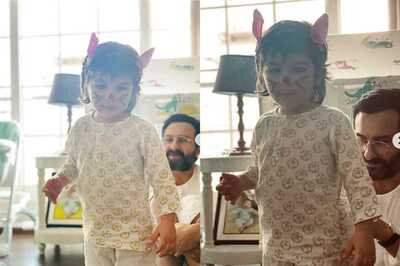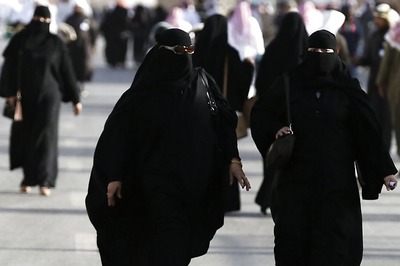Music Composer Ishaan Chhabra Explains The Music Of Scam 2003: 'There's All Kinds Of...' | Exclusive

views
Hansal Mehta’s SCAM universe just got bigger with another stellar addition this year. Scam 2003 featuring Gagan Dev Riar, Talat Aziz and others have already impressed everyone with it’s gripping screenplay, applause-worthy performances and crisp direction. Tracing the rise and fall of the notorious Abdul Karim Telgi, the makers didn’t leave any stones unturned, even with its background score. The face behind the soundscape, Ishaan Chhabra can be rightly credited for blending electronic elements with guitar, along with a subtle nod to Belgaum’s musical essence.
The music composer who operates from Los Angeles and Mumbai respectively has an interesting roster of previous works. For instance, apart from working closely with AR Rahman on a number of projects, Ishaan has churned out music for Children of War, Omerta, Love Aaj Kal 2, Raksha Bandhan and others. In an exclusive interview with News18 Showsha, Ishaan got candid about Scam 2003 and his other works.
Here are the excerpts:
How did you envision the musical landscape of Scam 2003? Apart from the contextual briefs you got from the story, how were you able to adapt that in the bgm?
The score for Scam 2003 had to propel the story forward and make the narrative engaging – so I designed the music to be rhythmic as opposed to textural and moody. Telgi’s character lent a lot to the sound of the score as well – he is this street smart, rough-around-the-edges yet smooth talking hustler who is a bit “filmy” in the way he operates – so Gagan Dev Riar’s powerful performance really helped in crafting the soundscape.
The blend of sitar, tabla and funk forms the leitmotif of Telgi story. It signifies the characteristics of the leading character. How did you go about arranging that?
There’s all kinds of influences I drew from. We have a dignified Hindustani classical influenced Sarangi theme for Shaukat bhai’s character and on the other hand there’s an eccentric, mischievous south Indian “Kuthu” inspired theme for Telgi which plays whenever he’s upto his shenanigans. Tying all of this together is a funky retro-futuristic synth backdrop and some orchestral passages for the emotional scenes. One particular theme also uses chopped-up old Bollywood string samples with a hip hop beat.
While the background score is one of the essential takeaways from the show, however, the makers have retained the opening intro from the first scam. Were there deliberations about creating a new intro for this one or was it a decision to retain the first intro as it had recall value?
Retaining the original theme from Scam 1992 was always the plan and I was completely onboard with that. It’s iconic and draws you into the Scam-universe rightaway.
This is not the first time that you worked with Hansal Mehta. You have collaborated with him on Omerta. And while many might ignore this fact that Hansal Mehta has a good understanding of using music as an asset. How’s it like working with him and how crucial are his inputs when it comes to designing background score?
Hansal sir is very particular about what he wants the music to do – but at the same time he really lets you do your thing, explore, be as original as possible and come up with a distinct soundscape. He’s musically inclined and gives precise references – that clarity is always helpful.
People are still waiting for the second part of the show. In the context of bgm, what more innovative sounds one could expect to hear from you that will add that gravitas in the narrative of Scam 2003.
The score definitely grows more intense, as does the story.. that’s all I can say right now ????
Apart from the bgm, were there any ideas to include some lyricals songs as well into the discography, just the way they incorporated Kabir Cafe’s song and Achint Thakkar’s song on Scam 1992?
Yes! There is a song in Kannada called “Raja Neene”, which I composed for one of the montage sequences. It’s been written by Dr. Umesh Pilikudelu and sung by Lavita Lobo. It’s a “hustlers anthem” of sorts and has a quirky, reckless and rustic vibe to it.. mirroring how Telgi operated.
Since it was imperative for you to infuse Belgaum’s influence in the sound design, during the course of it, what did you learn about India’s rich repertoire of folk music which changes form and style every 500 kms?
Yes.. the melodic aspect of Belgaum’s folk music was espeically interesting and formed the basis of the song “Raja Neene” and the score for the initial episodes. There’s so much to explore as far as Indian folk music is concerned. Incorporating folk influences into a score from the story’s setting gives the music its own character and lends a certain authenticity.
Is your process the same for designing soundtracks for commercial films compared to independent and parallel ones? What’s one of the most difficult and challenging gigs that you had to undertake and if you can recall a memorable advice from legendary people you’ve worked with, that you’ll hold close to you in your lifetime?
The process essentially is the same for both commercial and indie films. I start with creating a few theme ideas based on viewing a cut of the film or reading the script. Once the director is creatively on board these ideas, we start scoring to picture. The soundscape is generally different though – subtle, toned down, sensitive scoring for independent films and upfront, amped up, more obvious scoring for commercial films.
One of the most challenging gigs would have to be the 2022 Malayalam film Mahaveeryar. It’s a crazy premise – a modern day courtroom drama holding the trial of a time traveling 17th century king set in a fictional Rajasthani town. It took me and the director, Mr. Abrid Shine, a lot of trial and error to find the apt sound for the score and songs. Definitely one of my favorite projects.
Do you feel sound designers don’t get the kind of recognition and acclaim that they rightly deserved and they get overpowered by other technical aspects like cinematography and VFX?
Absolutely. Sound is 50% of film watching experience. I think sound designers and film mix engineers need to be recognized and appreciated for the huge amount of detailed work they put in every project.
How has your journey been with AR Rahman? In what ways has he inspired you, influenced you and continues to push you in the right direction?
It’s been an amazing, dream-come-true journey working with AR sir. Just watching him work is inspiring enough and makes you want to give everything your best. His attention to detail and ability to seamlessly blend genres have always been really influential.
What are your thoughts on the current musical landscape of India (both in terms of sound design as well as songs)? Do you feel we are running out of innovative sounds?
There’s some good work happening in the Indian music scene, but I feel the mainstream music industry can play less safe and take more creative risks. It’ll be great to see independent music come to the forefront, and to see film scores (not songs) getting proper album releases and exposure.
What’s more store in your plate? Which are some of the projects that you are eagerly waiting for?
I just finished scoring a horror series for Amazon which should be released by year-end. There’s a Hindi film, a Netflix series and a US based project in the pipeline as well.


















Comments
0 comment